Graham Reid | | 5 min read
Judy Mowatt: Mother Africa
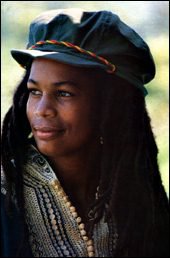
Judy Mowatt wears her unofficial title
“the queen of reggae" easily. A striking figure of regal
bearing, she holds her head high, and, as a member of The Twelve
Tribes of Israel, talks as easily about the Queen of Sheba in ancient
times as she does about Yellowman, and DJ dancehall stars in Jamaica
today – and shows a canny knowledge of chart placings for various
reggae artists.
In New Zealand for a lightning-fast
North Island tour, Mowatt and her band flew in from Los Angeles after
a bumpy and uncomfortable ride to be greeted by New Zealand members
of the Twelve Tribes of Israel. She admits the sight of brethren and
sistren on the tarmac lifted her spirits and was an auspicious sign
for the tour ahead.
Yet it is hard to believe Mowatt would
ever let her spirits sag anyway. She talks of her. music and performs
it in ways which emphasise its uplifting spiritual qualities and,
even though expressing regret at what has happened to reggae since
the death of Bob Marley (in whose I-Three’s vocal trio she sang
along with Rita Marley and Marcia Griffith), she considers herself
optimistic about the future.
And somewhere in that not-too-distant
future, her patient followers will be pleased to hear, is “a long
overdue album."
Mowatt's previous albums. notably Black
Women from '79 and Love is Overdue of three years ago, are identified
by her effortless cross of soul and reggae sounds and that's what she
promises for her new one – along with some very early Bob Marley
songs from the late Sixties which many people will be unfamiliar
with.
When Mowatt speaks and plays, as her
exuberant concert in Auckland showed, the spirit of Marley is ever
present and she feels the loss as keenly now as she did when he died.
But today the Marley estate is a messy business, with reports of
various Wailers going into litigation for a piece of the financially
fat pie.
Much of that has been resolved, she
says, but adds sorrowfully “for all he did for people it shouldn't
be that way, but that is what has happened.
“Chris Blackwell of Island Records
will be the one who will probably get the estate - all Jamaicans have
mixed feelings about that. But what can you do? We just hope that his
image and likeness will remain in years to come.”
Mowatt is less than enchanted by what
she sees has happened in reggae in the past decade and, al-
though she bemoans the lack of
international record companies paying attention like they once did,
finds much of what is recorded lacking in the spiritual dimension
which Marley and others gave it.
That’s why she continues to perform
song like Get Up, Stand Up, and is a bearer of his light even now.
“Bob was a great influence on young
people and they depended on his music for guidance and strength. But
after he died the trends changed -- and I think that was deliberate.
“The DJ became the thing. Yellowman
was king. This was a negative side to what Bob was dealing with. Look
at what Bob - the reggae king and ambassador - took to the world and
then what has been considered good music since. It is the positive
and the negative and it has led youth down the garbage lane. But
they've found nothing there -- and they are still searching”
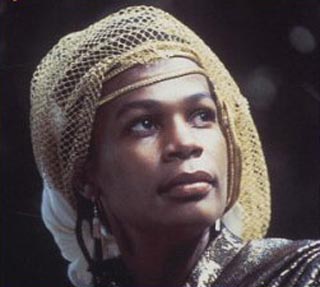 She accepts the younger generations
perhaps see her and other Rastafarian reggae artists as part of an
older generation but is encouraged by the re-emergence of singers
over DJs which she has observed at recent Sunsplash festivals in
Jamaica. If there is such a rekindling of interest in singers then
Mowatt is well poised to accept the mantle of reigning matriarch,
even if her clear enunciation of an equal role for women may not meet
with universal acceptance in the traditionally male-dominated
societies.
She accepts the younger generations
perhaps see her and other Rastafarian reggae artists as part of an
older generation but is encouraged by the re-emergence of singers
over DJs which she has observed at recent Sunsplash festivals in
Jamaica. If there is such a rekindling of interest in singers then
Mowatt is well poised to accept the mantle of reigning matriarch,
even if her clear enunciation of an equal role for women may not meet
with universal acceptance in the traditionally male-dominated
societies.
“It is said it is a man's world but
in a lot of societies the houses are run single-handedly by women and
it is matriarchal society.” she says, referring to what she
observed on a visit to Nigeria which tallied with her experience of
Jamaican society.
“In many places the woman still has
to walk seven steps behind her man and is economically and
emotionally dependent on him -- but she's the one who does everything
while he gets the praise and walks around with his walking stick. But
there are many women’s organisations which are rallying points for
women and we can see thing changing now.
“The Queen of Sheba was queen of land
from Ethiopia to the borders of India and her role was not demeaning
to men. The women [then] were militarists, they worked alongside men
in those ancient times . . . but in the West today the man gets
agitated if he sees power going to a woman. But if a woman deserves
power, she should have it.
“I am yet to see a world where men
and women can work together equally for the betterment of humanity
without one feeling that the other has too much power."
Mowatt feels that time will come,
however, and music can be part of the process of making it happen.
“Music has to have the ingredients to
unite the peoples of the world and music can play a part in that. We
invite one and all to come and listen to our music and be a part of
it, because we want to bring all people together." 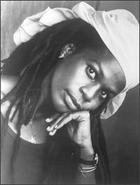
It is a message which she emphasises in
concert and, if the good feeling at her Auckland concert is typical,
one which she is succeeding at getting across. It is a thoughtful,
relaxed concert with plenty of upbeat grooves for dance. But as a
mother of five children growing up in a country now raddled with
cocaine abuse and violence, Mowatt is not so naive as to think the
healing power of music is enough of a code to live by. Her
Rastafarian faith is a powerful one and she passes that to her
children.
“I try my best to inculcate Christian
principles in my children because if they have that fear of God
they'll know there is a commandment against the negative things we
experience.
“If they have love and fear of God
they will not get involved in these things. Even if they should
depart from what you have taught them, they can later reflect on what
they’ve been told.
“That faith never leaves you."

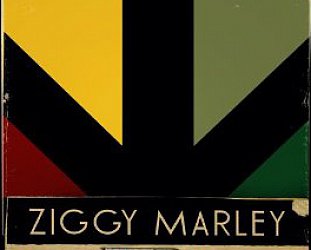


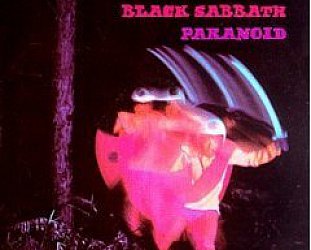
Nigel - May 7, 2012
Great piece about a lovely woman. I recently discovered Judy Mowatt's back catalogue and have been amazed at the depth of her talent. Judy and the I-threes were so under-rated - they somehow completed and softened the raw Marley sound, and some of her soul work is as good as her hero Aretha Franklin....I wish I'd seen her live...
Savepost a comment